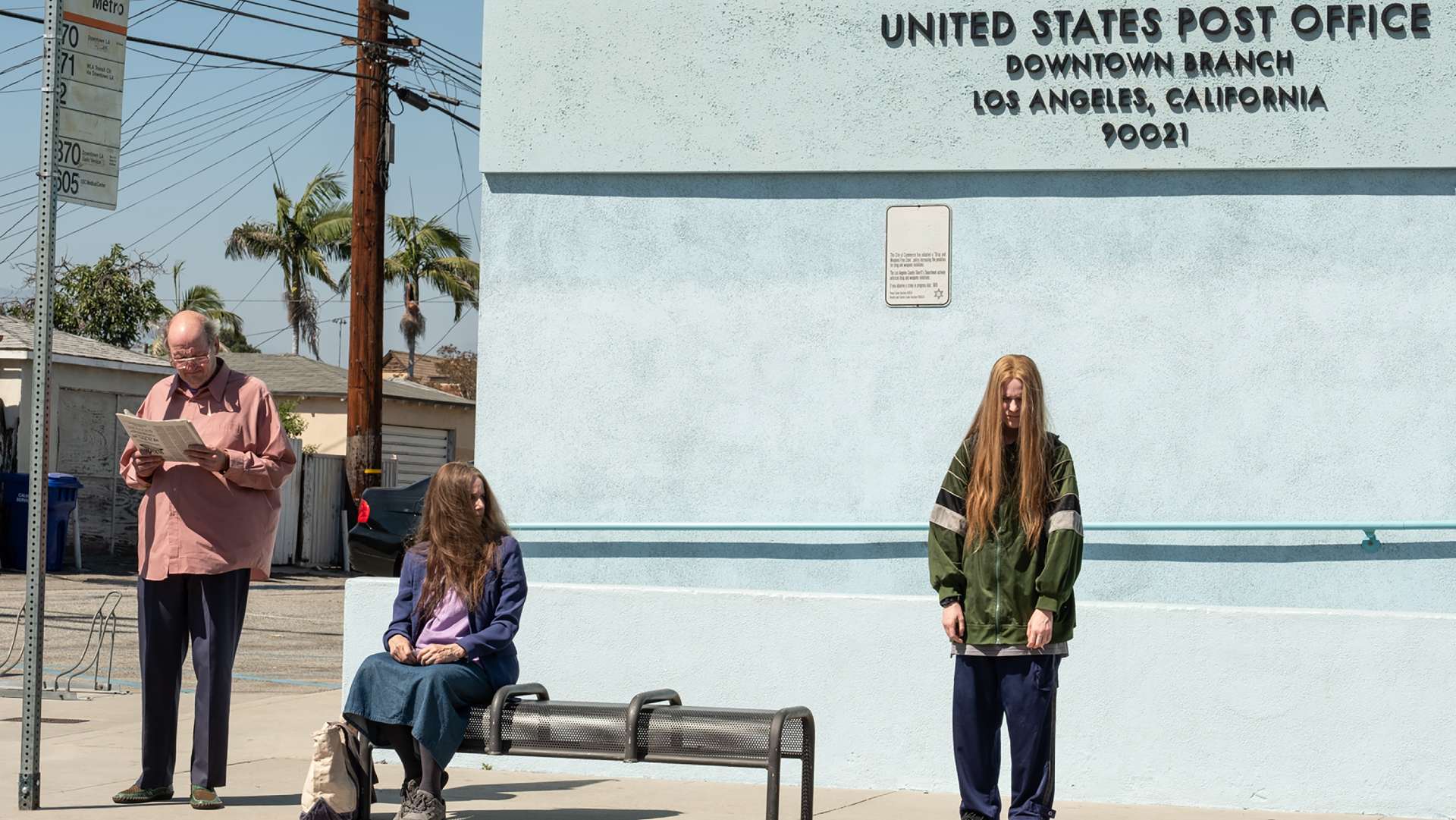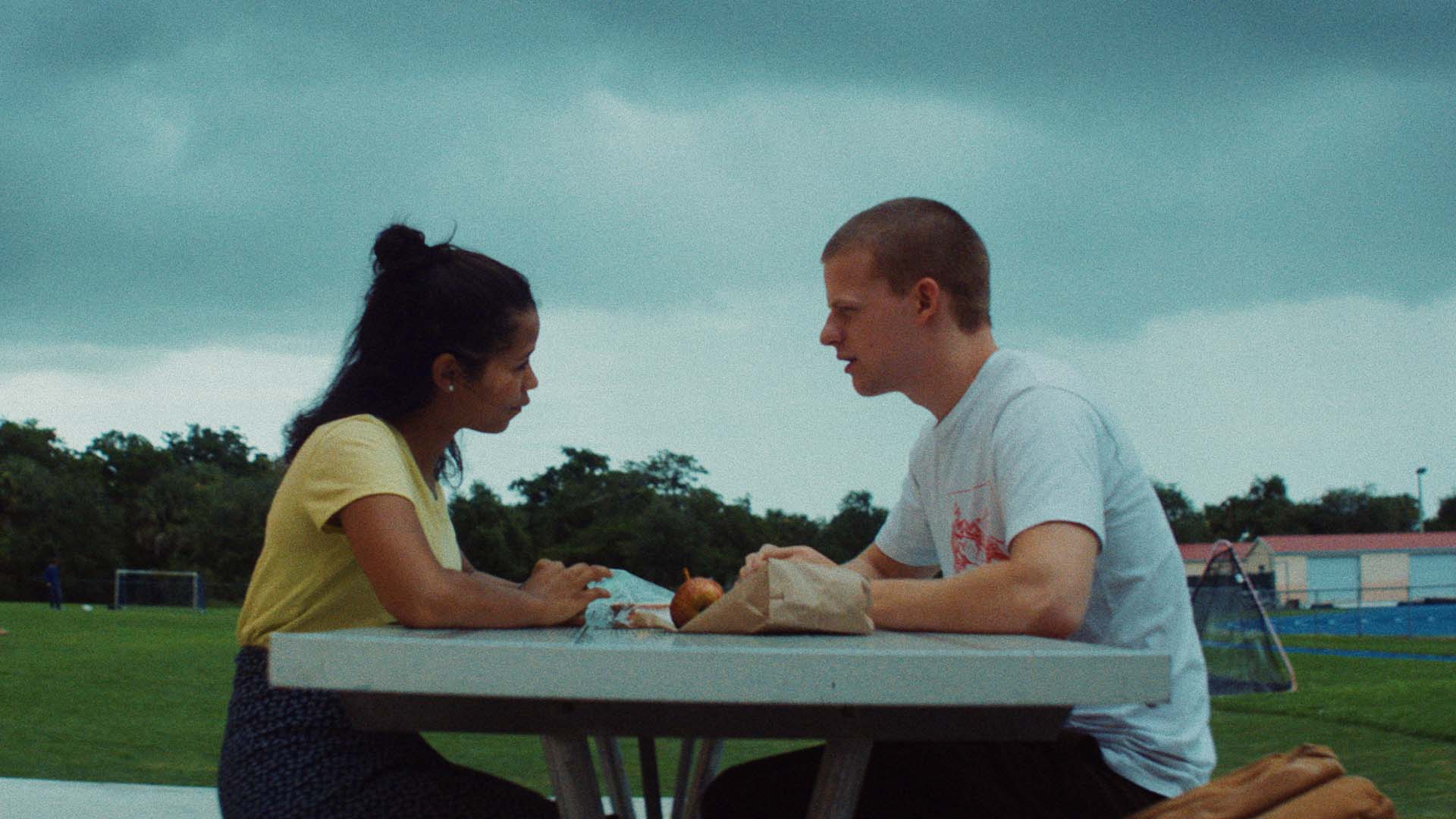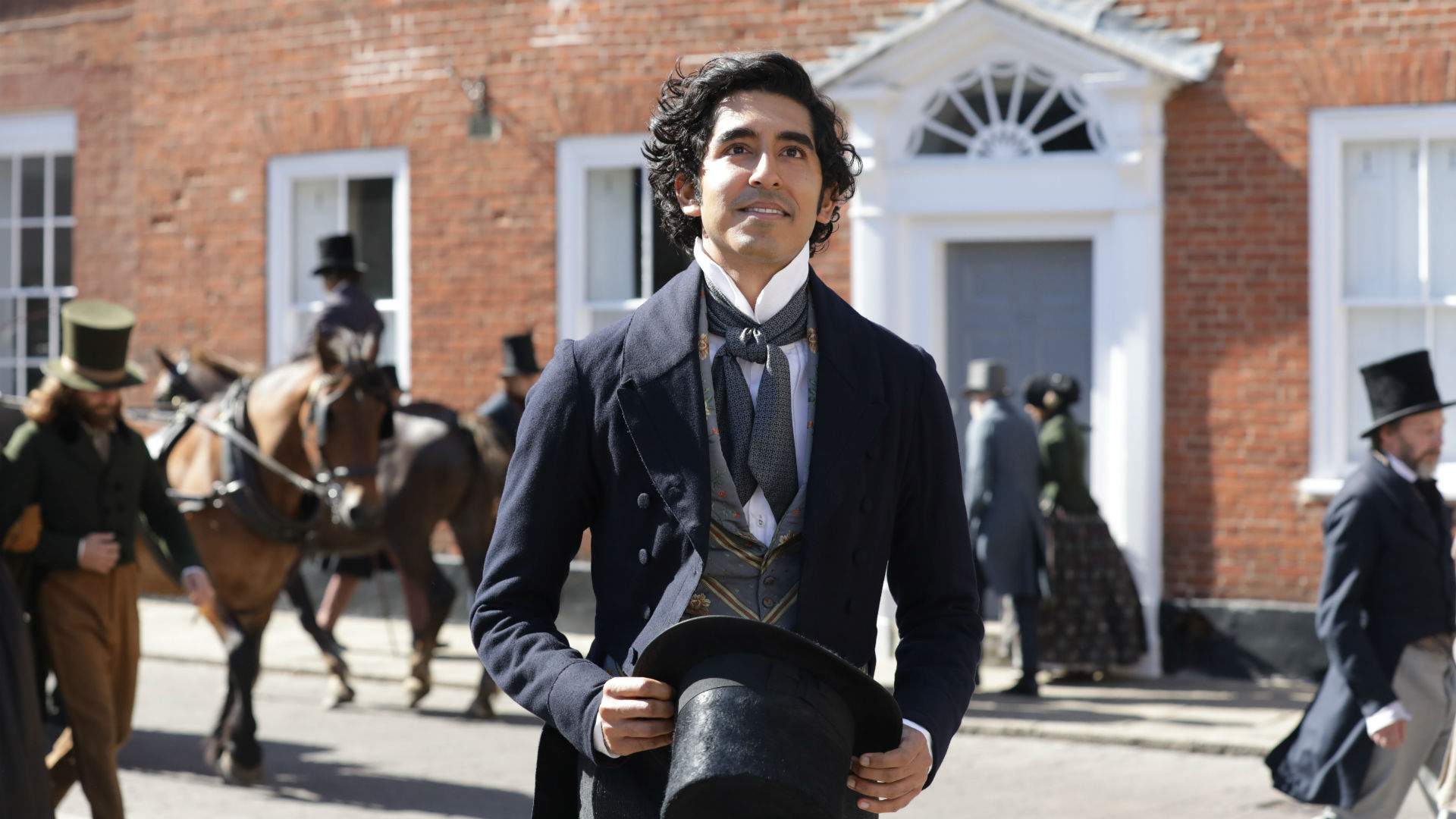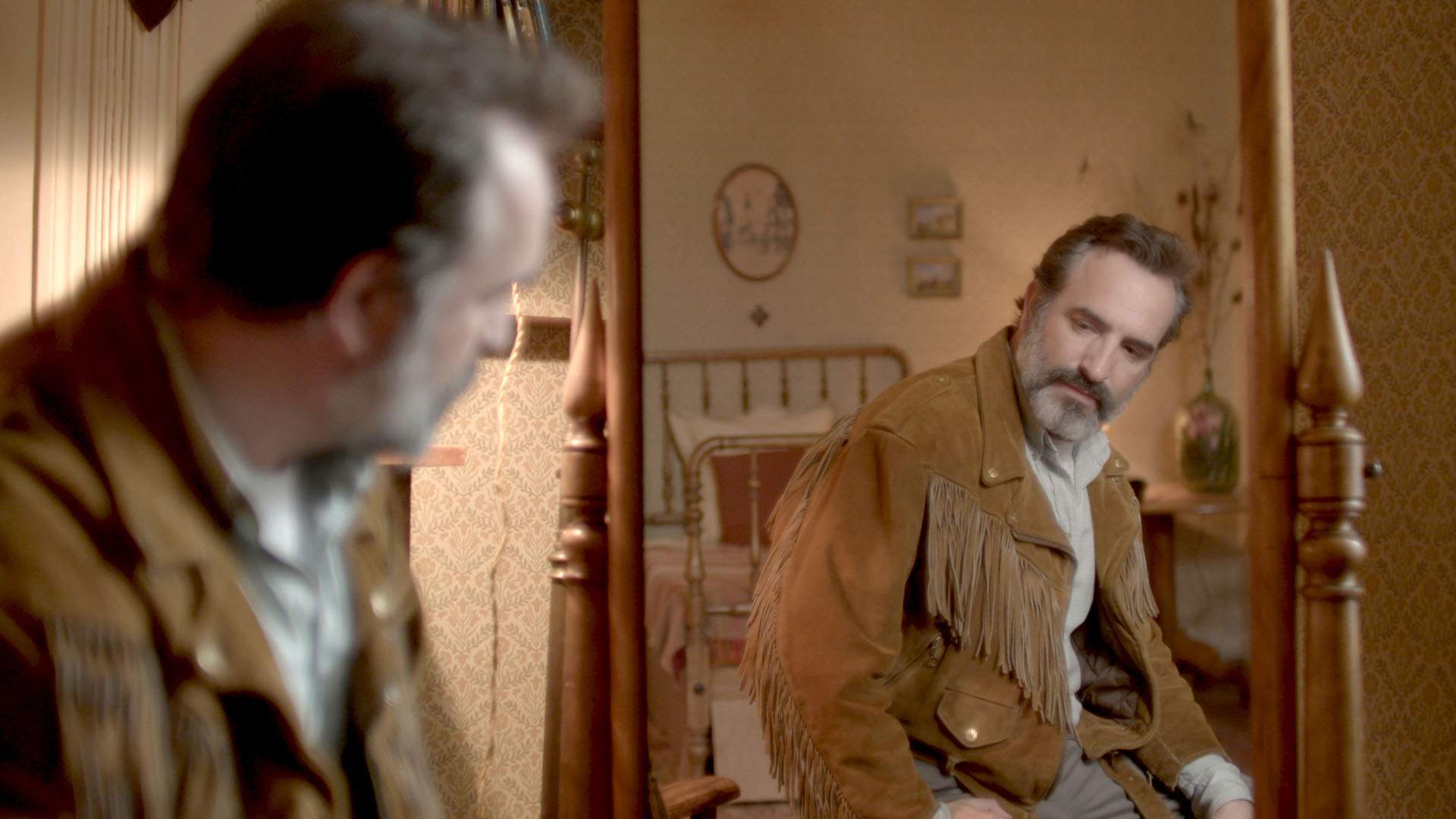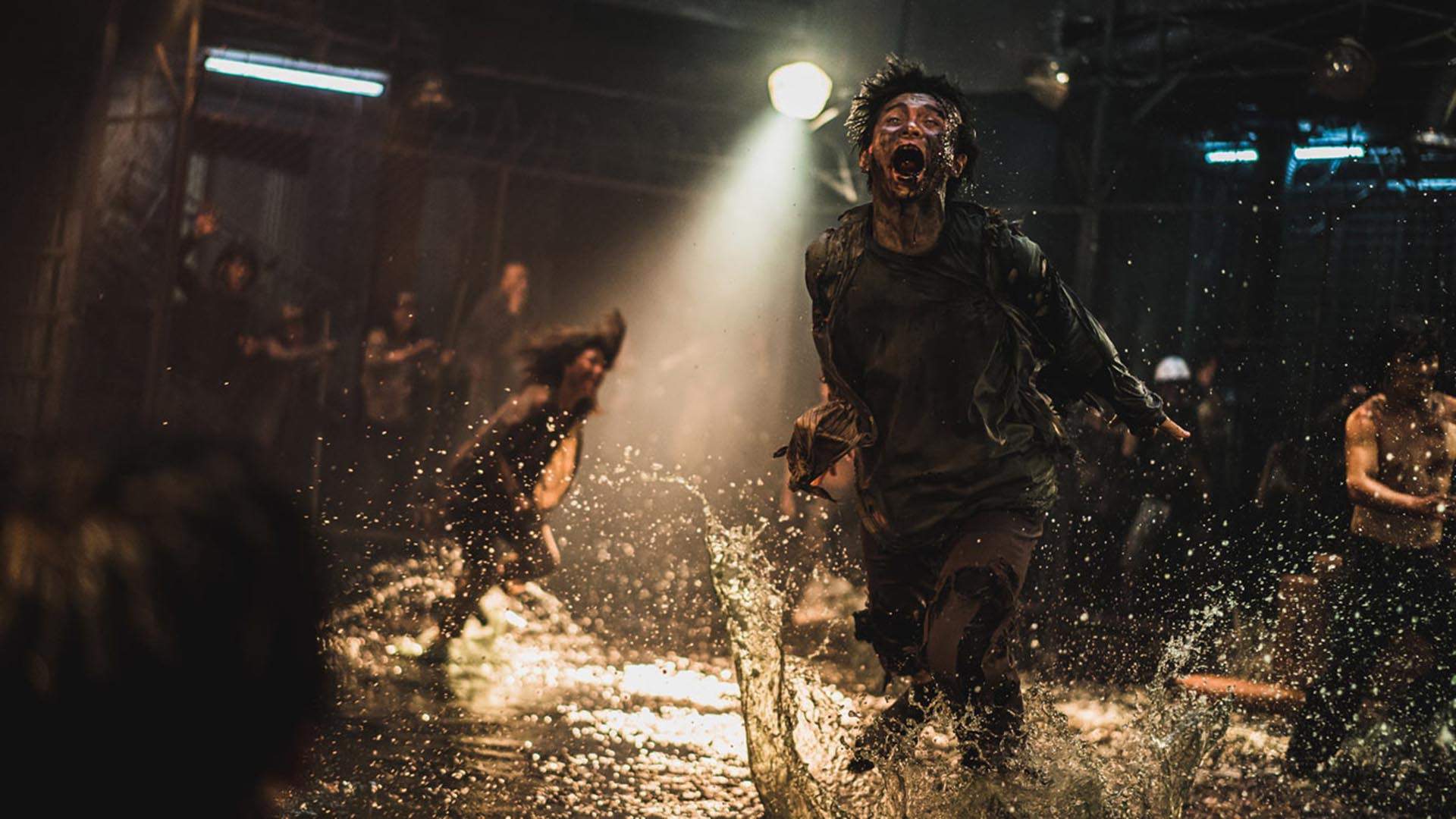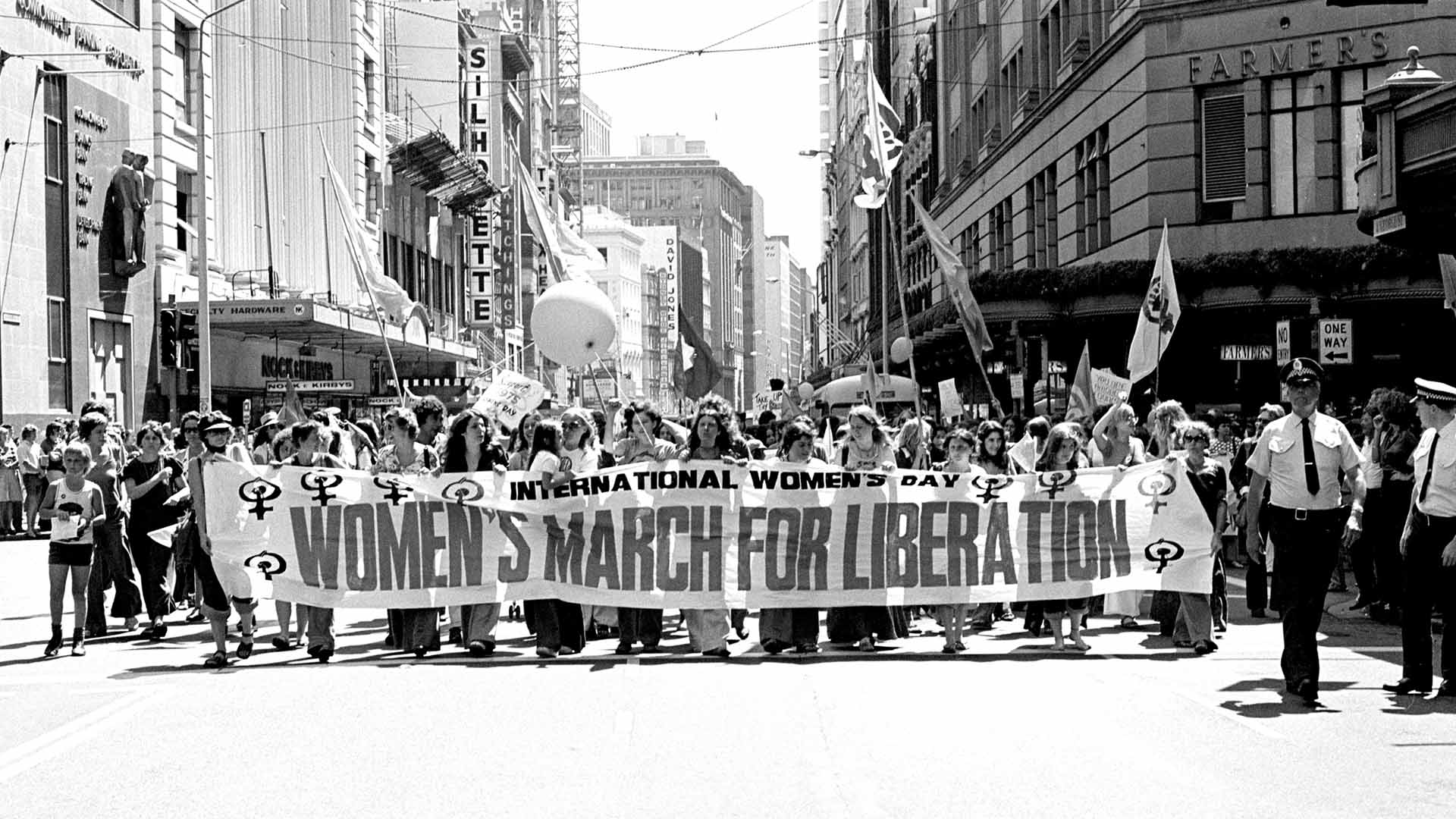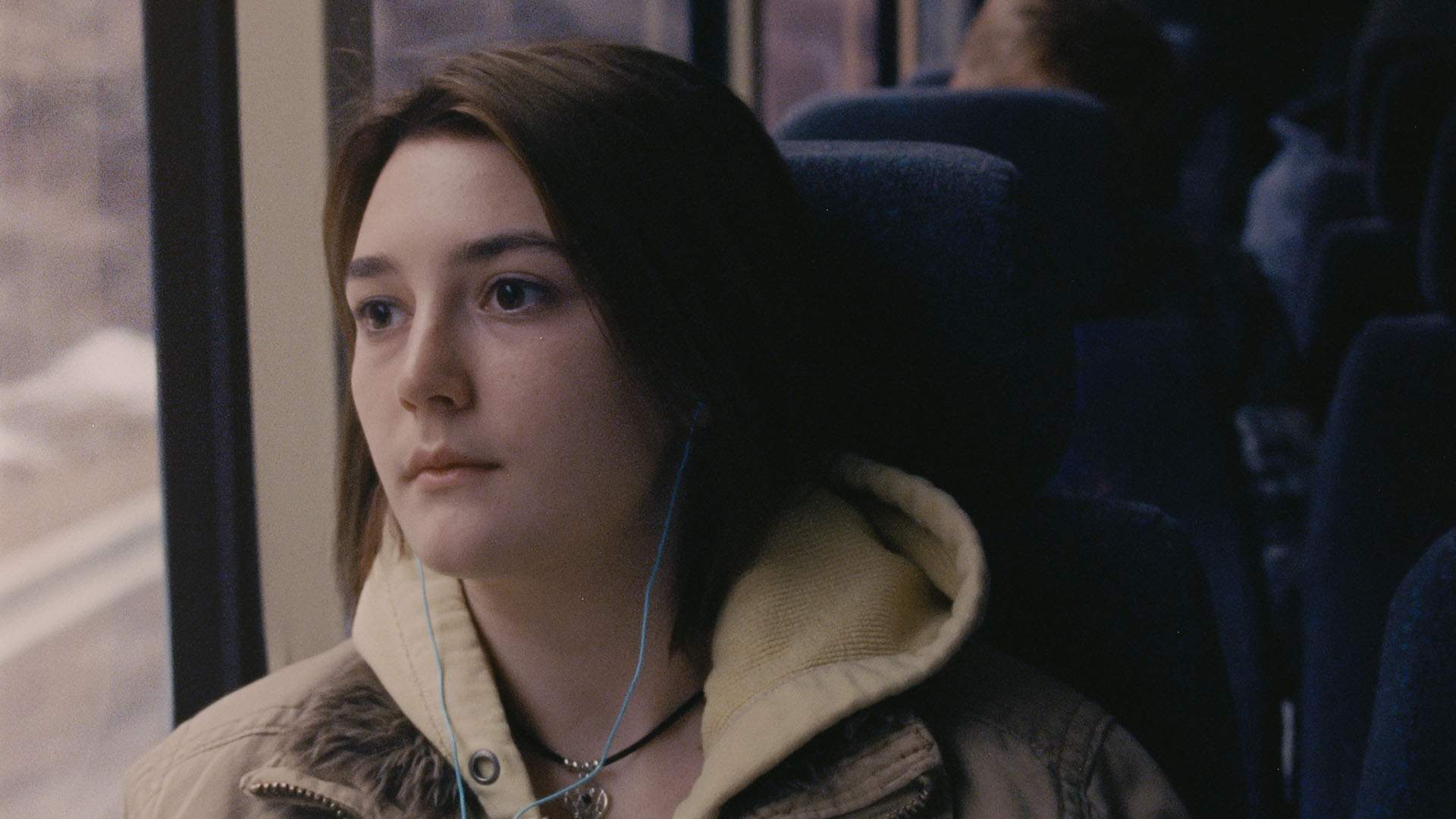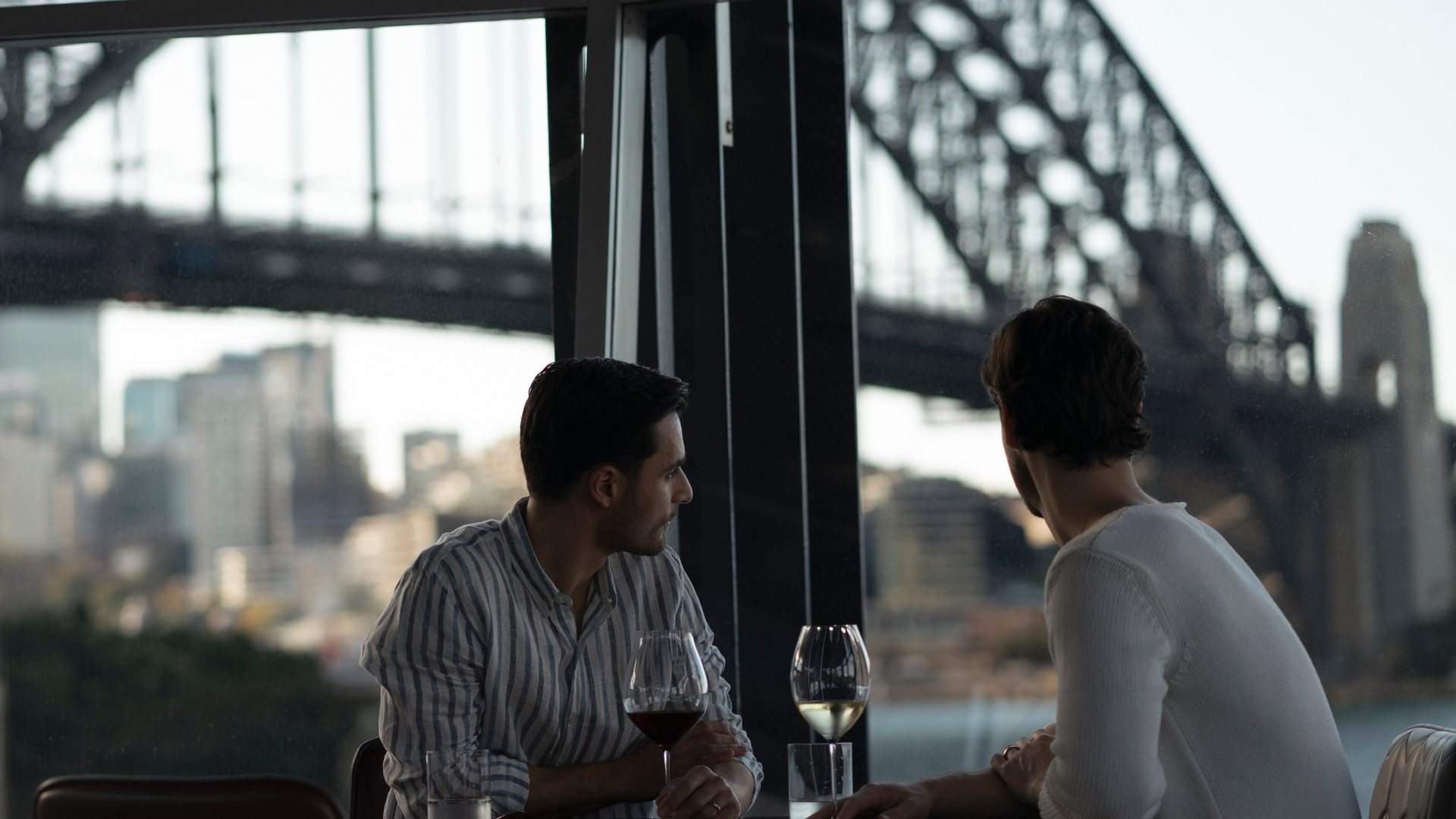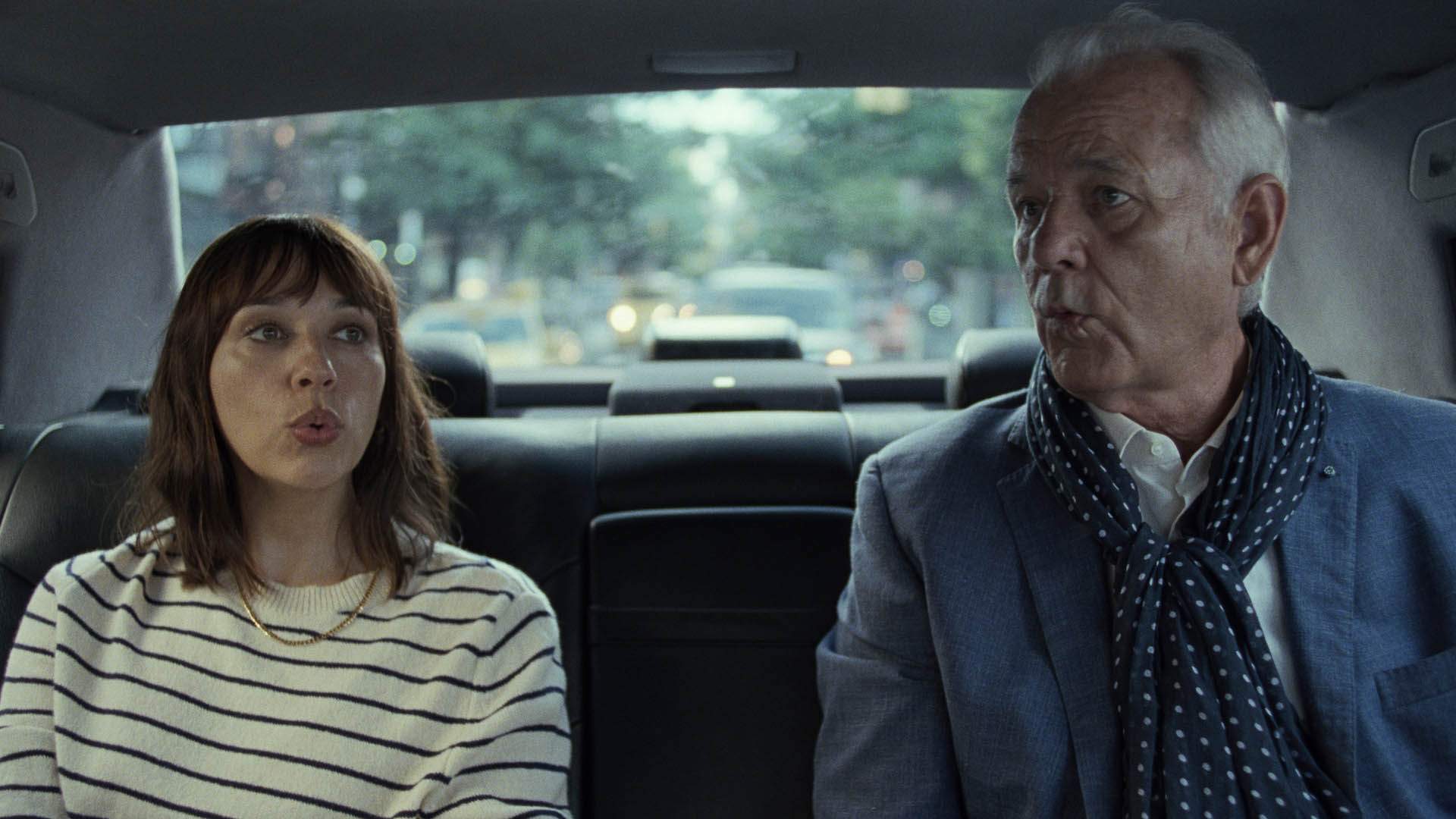The 12 Best New Films You Can See on the Big Screen Now That Melbourne Cinemas Have Reopened
From intimate and moving dramas to gripping thrillers — and must-see documentaries and insightful comedies, too.
Something delightful is happening at Melbourne's cinemas. After months spent empty, with projectors silent and the smell of popcorn fading, indoor picture palaces have been given the green light to reopen.
During COVID-19 lockdowns, no one was short on things to watch, of course. In fact, you probably feel like you've streamed every movie ever made this year, including new releases, comedies, music documentaries, Studio Ghibli's animated fare and Nicolas Cage-starring flicks. But, even if you've spent all your time of late glued to your small screen, we're betting you just can't wait to sit under the stars and soak up the splendour of the bigger version. Thankfully, plenty of new films are hitting cinemas so that you can do just that — and we've picked the 12 best flicks that you can head to.
KAJILLIONAIRE
When Evan Rachel Wood played a troubled teen in 2003's Thirteen, the then 16-year-old received a Golden Globe nomination. For her work in Westworld since 2016, she has nabbed multiple Emmy nods. So when we say that the actor puts in her best performance yet in Kajillionaire — the type of portrayal that deserves several shiny trophies — that observation isn't made lightly. Playing a 26-year-old con artist called Old Dolio Dyne, Wood is anxious but yearning, closed-off yet vulnerable, and forceful as well as unsure all at once. Her character has spent her entire life being schooled in pulling off quick scams by her eccentric parents Robert (Richard Jenkins, The Shape of Water) and Theresa (Debra Winger, The Lovers), who she still lives with, and she's stuck navigating her own street-wise brand of arrested development. Old Dolio knows how to blend in, with her baggy clothes, curtain of long hair and low-toned voice. She also knows how to avoid security cameras in physical feats that wouldn't look out of place in a slapstick comedy, and how to charm kindly folks out of reward money. But she has never been allowed to truly be her own person — and, from the moment that Wood is seen on-screen, that mournful truth is immediately evident.
Kajillionaire introduces Old Dolio, Robert and Theresa as they're falling back on one of their most reliable swindles: stealing packages from post office boxes. But two developments drive its narrative, and make Old Dolio realise that she's far more than just the third part of a trio. Firstly, to make a quick $20 to help cover overdue rent, she agrees to attend a parenting class for someone she meets on the street, and is struck by how far removed its teachings are from her own experiences. Secondly, on a return flight back to Los Angeles from New York as part of a travel insurance grift, her parents meet and befriend outgoing optometrist's assistant Melanie (Gina Rodriguez, Annihilation). So accustomed to playing the role dictated to her by Robert and Theresa, and never deviating from it, Old Dolio isn't prepared for the emotions stirred up by both changes to her status quo. But July's poignant and perceptive movie — a film that's a quirky heist flick, a playful but shrewd exploration of family bonds, and a sweet love story — is perfectly, mesmerisingly equipped to navigate her protagonist's efforts to reach beyond the only loved ones and the only type of life she has ever known. In fact, the result is one of the most distinctive, empathetic and engaging movies of the year.
Read our full review.

BABYTEETH
Usually, cancer movies aren't just terrible and generic — they're insulting. Too often focusing on pretty young things succumbing slowly to the insidious disease, they generally tug at the heartstrings with shameless abandon, treating their protagonists and their plights as a mechanism to wring weepy tears out of the audience. The Fault in Our Stars did it. Me and Earl and the Dying Girl did too, and even won awards at Sundance for its efforts. So when a film also hones in on a cancer-afflicted teenager yet refuses to trot out the same old tropes and cliches, it firmly stands out.
Based on the play of the same name, Babyteeth is that movie, and it could never be mistaken for the usual illness drama. As directed by feature first-timer Shannon Murphy, this lively, vibrant, insightful and genuinely moving Australian film truly sees its main character, Milla (Little Women's Eliza Scanlen), as a person first and foremost. She's not a mere tool used to evoke easy emotion. She isn't a secondary figure primarily deployed to explain someone else's troubles, either. Rather, she's a passionate Sydney high schooler who unexpectedly falls for drug dealer Moses (Acute Misfortune's Toby Wallace) as her already-struggling parents watch on. Also starring Essie Davis and Ben Mendelsohn as Milla's mother and father, this is a raw, sensitive, astute and arresting addition to a genre that rarely (if ever) earns any of those terms. It's also visually striking and, unsurprisingly given the cast, boasts fantastic performances — and it's one of the best Aussie movies that'll hit cinemas in 2020.
Read our full review.

PENINSULA
If, prior to 2016, you'd ever wondered what might happen should zombies overtake South Korea, Train to Busan and Seoul Station arrived to answer that question. The first was a live-action thriller that tasked a locomotive full of living, breathing humans with battling the shuffling undead in one of the genre's best and most action-packed outings, while the second served up an animated prequel that detailed the start of the epidemic in another city. Now lands Peninsula, in case if you've since spent the past four years pondering what could occur next. Once again directed by Yeon Sang-ho, as all films in the franchise have been, it leaps forward to the present day to explore the plight of the apocalypse's survivors — including those initially lucky enough to flee via boat to Hong Kong, such as army Captain Jung-seok (Gang Dong-won) and his brother-in-law Chul-min (Kim Do-yoon); and folks like mother Min-jung (Lee Jung-hyun) and her daughters Joon (Lee Re) and Yu-jin (Lee Ye-won), who weren't as fortunate.
All of the aforementioned characters cross paths when Jung-seok and Chul-min are recruited by Hong Kong heavies to head back to the abandoned and quarantined Incheon, where a truck filled with cash awaits. Zombies don't care about money, of course, so the city's valuables are there for he taking. But Incheon isn't completely empty, with Min-jung and her children spending years evading flesh-munchers and escaping a brutal rogue militia group that call themselves Unit 631. If Train to Busan took a Snakes on a Plane-esque idea, changed it to zombies on a train and made a top-notch movie in the process, Peninsula opts for decidedly dystopian Mad Max-meets-Fast and Furious-meets-World War Z heist flick setup — and, while it doesn't quiet reach its predecessor's heights or add anything new to the heaving undead genre, it is thoroughly entertaining. Cuts to an English-language talk show that explains what's going on are both needlessly exposition-heavy and cringe-inducing, but the film's grounded performances, ample array of fantastic setpieces and swift editing by Parasite Oscar-nominee Yang Jin-mo are always riveting.
Read our full review.

NEVER RARELY SOMETIMES ALWAYS
In the scene that gives Never Rarely Sometimes Always its name, 17-year-old Autumn (Sidney Flanigan) sits with a counsellor at Planned Parenthood in Brooklyn. The teen hails from Pennsylvania, but has taken the bus east with her cousin Skylar (Talia Ryder) upon discovering that she's pregnant and realising she only really has one option — knowing that her family is unlikely to help, and after her local women's clinic has advised that she should just have the baby. Before she can obtain the New York facility's assistance, however, she is asked questions about her history. The queries broach tough and intimate subjects, but Autumn only needs to answer with one of the words from the movie's moniker. While they're simple and common, those four terms explain much about why a small-town high-schooler is engaging in a practice that's been dubbed 'abortion tourism'. So too does the silence that punctuates her responses and the heartbreaking expression on her face that goes with them.
From its opening frames, which sketch out Autumn's everyday life — the taunting peers, the awkward dynamic at home, the attentions of her boss at her after-school supermarket job, and the efforts to be seen by performing at her class concert — Never Rarely Sometimes Always is an intricately observed and stunningly detailed film. Accordingly, when the aforementioned scene arrives, it's the latest potent, compassionate and revealing moment in a movie filled with them. But filmmaker Eliza Hittman (It Felt Like Love, Beach Rats) refuses to give viewers even the tiniest reprieve here. Autumn can't escape these difficult questions or the entire experience she's dealing with, and the audience is forced into the same situation. Maintaining the feature's unobtrusive, naturalistic, almost documentary-esque style, cinematographer Hélène Louvart (Happy as Lazzaro) doesn't look away, while first-time actor Flanigan pours out an entire lifetime's worth of feeling under the film's unrelenting gaze. As intimated by its protagonist's name, as taken from the season when the leaves fall, warmth fades and the weather's frostiest period approaches, this is a film about decay, loss and change in multiple ways — and it's as grim and gripping as it is outraged, empathetic and affecting.
Read our full review.

WAVES
Waves begins with streaming sunlight, the scenic sights of South Florida, and a blissful young couple singing, smiling and driving. Their happiness is captured by fluid, enticing camerawork that circles around and around, and their exuberant attitude — the carefree feeling that comes with youthful first love — is mirrored by the use of Animal Collective's upbeat, energetic 'FloriDada' on the soundtrack. But this isn't a joyful movie. As the drama's name intimates, this contented moment is soon smothered by waves of tragedy and pain that ripple through the lives not only of high-school wrestling star Tyler (Kelvin Harrison Jr) and his girlfriend Alexis (Alexa Demie), but their loved ones, school and community. Following the breakdown of the pair's romance, Tyler's self-sabotaging struggles with injury and pressure, and the impact on those closest to them, Waves tells an immensely affecting tale of one African American family's ups and downs.
While he already has the excellent Krisha and effective It Comes at Night to this name, writer/director Trey Edward Shults crafts his best work yet — a stunningly visceral, moving and profound drama that makes audiences feel every moment and plot development deeply. Also exceptional: Harrison's powerful performance, Taylor Russell as his younger sister Emily, Sterling K Brown as their domineering but well-intentioned dad and Hamilton's Renée Elise Goldsberry as their supportive stepmother, as well as the film's raw and resonant grappling with life, loss, love, and the chaos and emotion of being a Black teenager in America today.
Read our full review.

SHIRLEY
Unlike the rest of us, Elisabeth Moss is having a great year — on-screen, at least. While the star of The Handmaid's Tale, Mad Men and Top of the Lake has actually enjoyed a fantastic past decade, she has turned in two of her best performances yet in 2020. First came her lead role in The Invisible Man, which twisted the classic horror tale in firmly modern directions, including exploring gaslighting and society's lack of willingness to believe women. Now, in Shirley, she steps into the shoes of horror and mystery novelist Shirley Jackson. This is a movie by Madeline's Madeline director Josephine Decker, though, so it as never going to be a standard biopic about the The Haunting of Hill House author.
Indeed, Shirley is drawn from a fictional novel by Susan Scarf Merrell, stepping inside Jackson's home life with her husband Stanley Hyman (Michael Stuhlbarg) during a 1964 period when teaching aide Fred Nemser (Logan Lerman) and his wife Rose (Australian The Daughter star Odessa Young) come to stay. An agoraphobic who prefers her own company to that of others, Jackson's routine is unsettled by her new houseguests, although an unexpected connection springs with seemingly unlikely kindred spirit Rose. In telling this story, Decker is far more interested in capturing the essence of her subject and Jackson's sensibilities than slavishly sticking to facts, and her film all the better for it. The result is a subjective and engaging character study that's daring, disarming, dark and, unsurprisingly, anchored by a pitch-perfect Moss.

A WHITE, WHITE DAY
When grief plays a pivotal part in a film's narrative, one of two things typically happen. Far too often, it's used as an easy crutch, deployed to quickly explain a character's poor actions without diving particularly deep (see: this year's Ben Affleck vehicle The Way Back). When mourning is thoughtfully unpacked and interrogated, however, the difference is immediately noticeable. And, that's the case with excellent Icelandic thriller A White, White Day.
Set in a remote town and often noticeably cloaked in a thick fog (symbolising its lead character's loss-afflicted head and heart, too), the film follows widower Ingimundur (Ingvar Sigurðsson), an off-duty police chief struggling with the death of his wife. While assisting with caring for his eight-year-old granddaughter Salka (Ída Mekkín Hlynsdóttir) helps give his days purpose, after Ingimundur begins to suspect that his deceased spouse was unfaithful, he's rocked by more than bereavement-induced misery. Sigurðsson is phenomenal as a man overcome by his heartbreak and anger, and his scenes with young Hlynsdóttir are immensely tender and touching. What particularly stands out in this tense, haunting and all-round excellent movie, though, is director Hlynur Palmason's (Winter Brothers) striking visual storytelling — whether he's spending an hypnotic minute watching a rock tumble down a hill and off a cliff, staring at his central actor's expressive face, or splashing his frames with spellbinding bursts of colour amidst the rampant grey-hued frostiness.

LES MISÉRABLES
Almost 160 years since Victor Hugo immortalised the Montfermeil commune in Les Misérables, first-time feature writer and director Ladj Ly heads there to tell a different story. Or, to be exact, his Cannes prize-winning, Oscar-nominated crime-thriller that's also called Les Misérables stops by the spot to explore comparable themes in contemporary France — and to interrogate the reality of life in the Les Bosquets housing estates in one of the capital's banlieues. The latter and their communities have featured in the likes of 1995's La Haine and 2014's Girlhood before, two hands-down French movie masterpieces, but the approach here is especially inspired. Drawing parallels with a globally known, much-adapted, long-popular classic to shine a spotlight on modern-day class and cultural clashes is smart and savvy and, in the hands of a filmmaker from the area who is already known for making documentaries about the area, results in an especially compelling and confronting piece of cinema with revolution at its heart.
Every neighbourhood bubbles with stories. So, focusing on Les Bosquets, Ly relays as many tales as he can. With propulsive and fittingly restless energy, his film flits between the locale's cops, kids and gangs — with troubles between all three groups reaching boiling point over the course of two summery and eventful days. The catalysts: familiar prejudices, long-held beefs, a stolen lion, a wrongful shooting and some controversial drone footage. The fallout: considerable. Unrelentingly terse and unafraid to filter real-world unrest through every frame, this Les Misérables is not always subtle; however, given the complicated terrain that it traverses, it needn't be. As a portrait of social tensions drawn from real-life situations, this is a movie of explosive emotional and visceral power even when it's clearly lacking in nuance. As an examination of how one event can escalate, detonate and spark a chain of chaos, and, Hugo-style, how insurrectionary acts come about, it hits hard. This definitely isn't a musical, but Ly's gripping, evocatively shot, deftly choreographed and impressively acted feature is still a rousing cinematic song of angry Parisians.
Read our full review.

BRAZEN HUSSIES
Chatting to activists involved in Australia's women's liberation movement during the 60s and 70s, Brazen Hussies doesn't lack in witty and wise ladies making pivotal points. But it's filmmaker Margot Nash (The Silences) who offers one of this documentary's most telling observations, and the one that crystallises exactly why this movie had to be made. "History has to be told over and over again," she advises. She's a talking head in the film, rather than the writer or director behind it — those roles fall to first-timer Catherine Dwyer — but she couldn't encapsulate Brazen Hussies' purpose any better if she was the doco's driving force. As the feature explains, it's easy for people to overlook this chapter of history, and the fact that it all happened so recently. It's easy to forget that women's lives were drastically different, as was the way they were regarded by the world around them.
Brazen Hussies surveys pay inequality, legal abortion, funding for childcare, the way both queer women and Indigenous Australian women are treated, society's abhorrence of female sexuality and the first Advisor on Women's Affairs to a head of government anywhere in the world — plus everything from tackling domestic violence and the victim-blaming that can go along with it, to the simple struggle to survive that single mothers faced as well. But this happens in tandem with a historical recounting of Australia's actual fight for women's liberation, with Dwyer inspired by working on 2014 documentary She's Beautiful When She's Angry (which did the same from a US perspective). She examines what drove the more than 25 women she counts among her eponymous group to act and what they achieved, of course. At every moment, however, she's just as interested in how they battled for that change. Having access to a treasure trove of materials helps considerably in this engaging, informative and impassioned film. If the doco's talking-head lineup is impressive, it's bested only by the immense range of archival images and footage that Dwyer and editor Rosie Jones (director of The Family) splice together. With the rest of the filmmaking team, the pair sifted through more than 4000 photographs, journals, artworks and posters, and 800-plus news clips, documentaries and dramatic movies — and, unsurprisingly, Brazen Hussies is all the more detailed for it.
Read our full review.

DEERSKIN
How far would you go for the perfect piece of clothing? And can one ideal fashion item completely change your life? They're two completely relatable questions that Oscar-winning The Artist star Jean Dujardin faces in Deerskin, after his character Georges — an aspiring filmmaker — takes a strong liking to a fringed deerskin jacket that he just can't live without. And, we mean strong. Obsessed, fanatical and passionate, even. In the way that anyone can, but that vain, middle-aged, just-divorced men are stereotypically known to, Georges is certain that this one luxurious object is perfect for him. It doesn't matter that said coat costs nearly €8000, a price tag that most would stumble over. Similarly irrelevant: that the jacket looks just a tad too small while he's wearing it. Instead, how it makes Georges feel is far more important than any logical drawbacks — to him, at least. Also pivotal is the fact that it catches the attention of a small-town barmaid (Portrait of a Lady on Fire's Àdele Haenel).
The latest film by the inimitable Quentin Dupieux (also known, in his electronic music guise, as Mr Oizo), Deerskin is the writer/director's latest movie to fixate on an inanimate object. If you saw the French filmmaker's 2010 cult hit Rubber, then you'll know just what kind of weirdness, ridiculousness and just all-round offbeat antics you're in for. That said, a few things particularly stand out in this, which might be his most accessible film. The deadpan performances, including from a fantastic Dujardin, are a delight. The commentary about consumerism and male egos proves as funny as it is astute — and even though it's also rather obvious, it's always entertaining. Indeed, the fact that the movie well and truly knows that it's stretching a thin basic idea to an absurdist extent means that everything is a joke, and the film is all the better for it. And then there's the visual symbolism and the editing, which both follow their own rhythm as much as anything Dupieux has ever made.
Read our full review.
ON THE ROCKS
Not once, not twice, but three times now, Sofia Coppola has given the Bill Murray-loving world exactly what it wants. One of the great comedic talents of the past half-century, the Ghostbusters and Groundhog Day star is also a greatly charismatic talent — and, understandably, viewers want to spend more time in his inimitable company. So, Lost in Translation and 2015 Netflix special A Very Murray Christmas made that happen. Now On the Rocks does as well. These are films and specials predicated upon the very idea of palling around with Murray or the character he's playing, and this one hits that mark as perfectly as its predecessors. Murray steps into the shoes of a debonair playboy art dealer who is determined to help his New York-dwelling adult daughter discover if her husband is being unfaithful, his pairing with Rashida Jones is both joyous and lived-in, and Coppola once again strips bare her own life experiences, fictionalises them, and creates something both thoughtful and moving.
On the Rocks' premise really isn't far removed from Lost in Translation. The film's female protagonist is a decade older this time, her romantic troubles are complicated by both marriage and children, and another bustling city provides the backdrop, but the basic idea remains mostly the same. With Murray as the lively Felix and Jones as his overstressed offspring Laura, the movie takes them hopping around NYC as they endeavour to ascertain if the latter's workaholic other half, Dean (Marlon Wayans), is cosying up to his attractive young colleague (Jessica Henwick) while Laura is raising their two young daughters. In the process, Felix and Laura chat about anything and everything, covering topics both important and trivial. They eat and drink, and do so in luxe spaces while Felix naturally captivates everyone in his orbit and turns everything into an adventure. Over the course of their investigative escapade, Felix helps Laura work through her struggles, too — although here, their own complicated relationship is actually one of them.
Read our full review.

THE PERSONAL HISTORY OF DAVID COPPERFIELD
He's skewered British, American and Russian politics in The Thick of It, In the Loop, Veep and The Death of Stalin. This year, in the eerily prescient Avenue 5, he pondered what would happen if a group of people were confined on a cruise of sorts — a luxury space voyage — for an extended stretch of time. But, made in period comedy mode, The Personal History of David Copperfield might just be Armando Iannucci's most delightful affair yet. Indeed, playfully trifling with a Charles Dickens classic suits the writer/director. It should; he's a huge fan of the 19th-century author, and a staunch believer that Dickens' body of work "isn't just quality entertainment for a long-dead audience" (as he told viewers in his 2012 BBC special Armando's Tale of Charles Dickens). And so, taking on the acclaimed scribe's semi-autobiographical coming-of-age story, Iannucci tinkers, massages and re-envisages David Copperfield with ample love for the literary source material. In the process, he also crafts a still Victorian era-set yet unmistakably modern — and fresh, very funny and sharp-witted — big-screen adaptation.
The eponymous character's tale begins in the film as it does on the page: with Copperfield determined to discover whether he shall turn out to be the hero of his own life "or whether that station will be held by anybody else". On-screen, the hopeful aspiring writer (Dev Patel) delivers that statement from a stage while speaking to a crowd. Then, in one of the many inventive visual flourishes that mark Iannucci's lively retelling, Copperfield strolls through the background to revisit his experiences from the moment of his birth. As episodic on the screen as it is in the book, Copperfield's life then navigates a rollercoaster of ups and downs — starting with the drudgery of child labour, as well as time spent lodging with the poverty-stricken, law-skirting but always kindly Mr Micawber (Peter Capaldi) and his family. As Dickens was, Iannucci and his frequent co-scribe Simon Blackwell (Peep Show, Breeders) are well aware of class chasms, the tough plights endured by the masses to benefit the better-off, the dog-eat-dog nature of capitalism in general and humanity's selfish, self-serving nature. The Personal History of David Copperfield may be largely upbeat in tone, visibly bright and dynamic, and take a few shrewd liberties with the story, but the darker elements of the narrative never escape view.
Read our full review.

Melbourne cinephiles are currently being spoiled for choice — and while we've outlined the 12 best options above, there are plenty more flicks gracing the city's silver screens.
When outdoor cinemas reopened, we outlined the films showing under the stars.
You can also read our full reviews of The King of Staten Island, Tenet, The New Mutants, Bill & Ted Face the Music, An American Pickle, Antebellum, The Craft: Legacy and Radioactive.
And, you can check out our rundowns of the new films that released in other cities over the past few months — on July 2, July 9, July 16, July 23 and July 30; August 6, August 13, August 20 and August 27; September 3, September 10, September 17 and September 24; and October 1, October 8, October 15, October 22 and October 29 — as a number of those movies are now showing in Melbourne as well.

